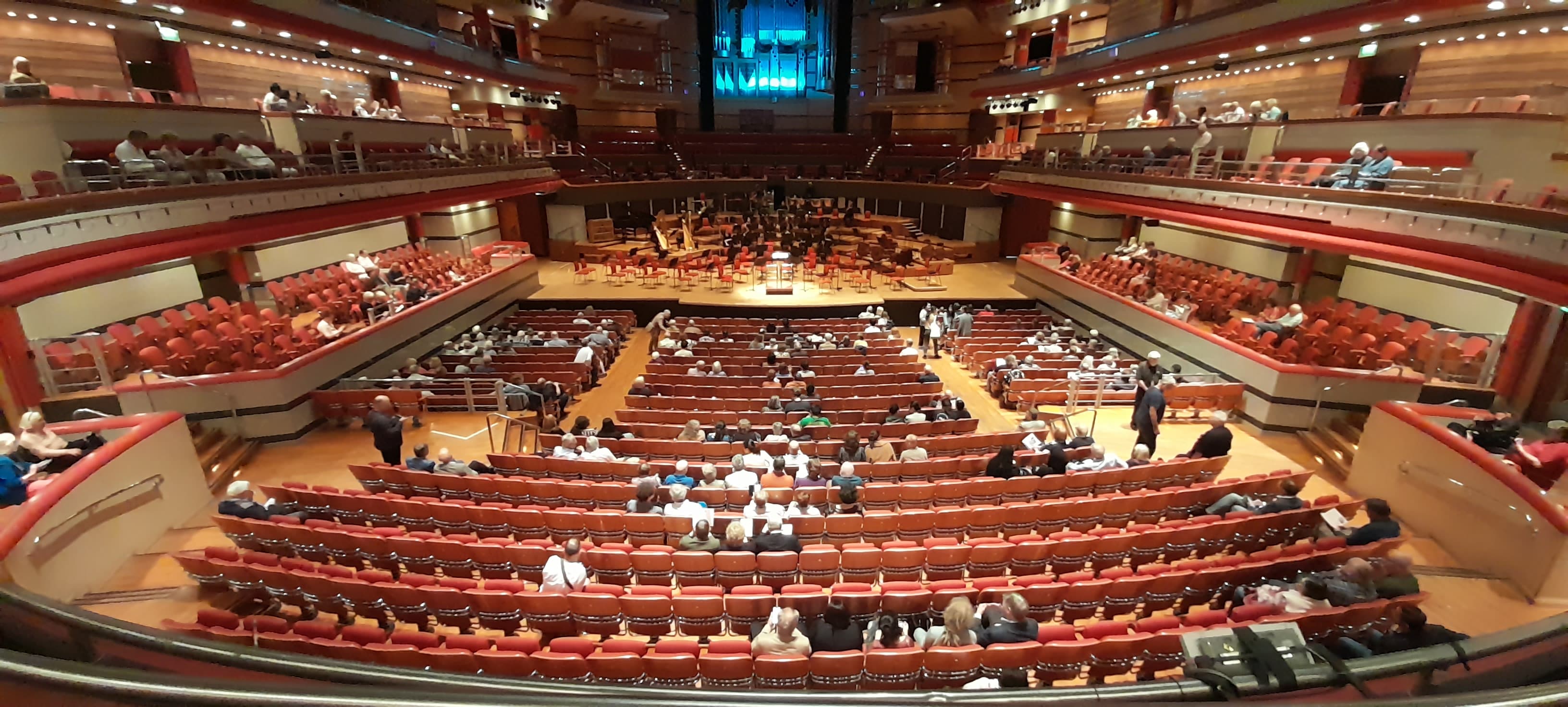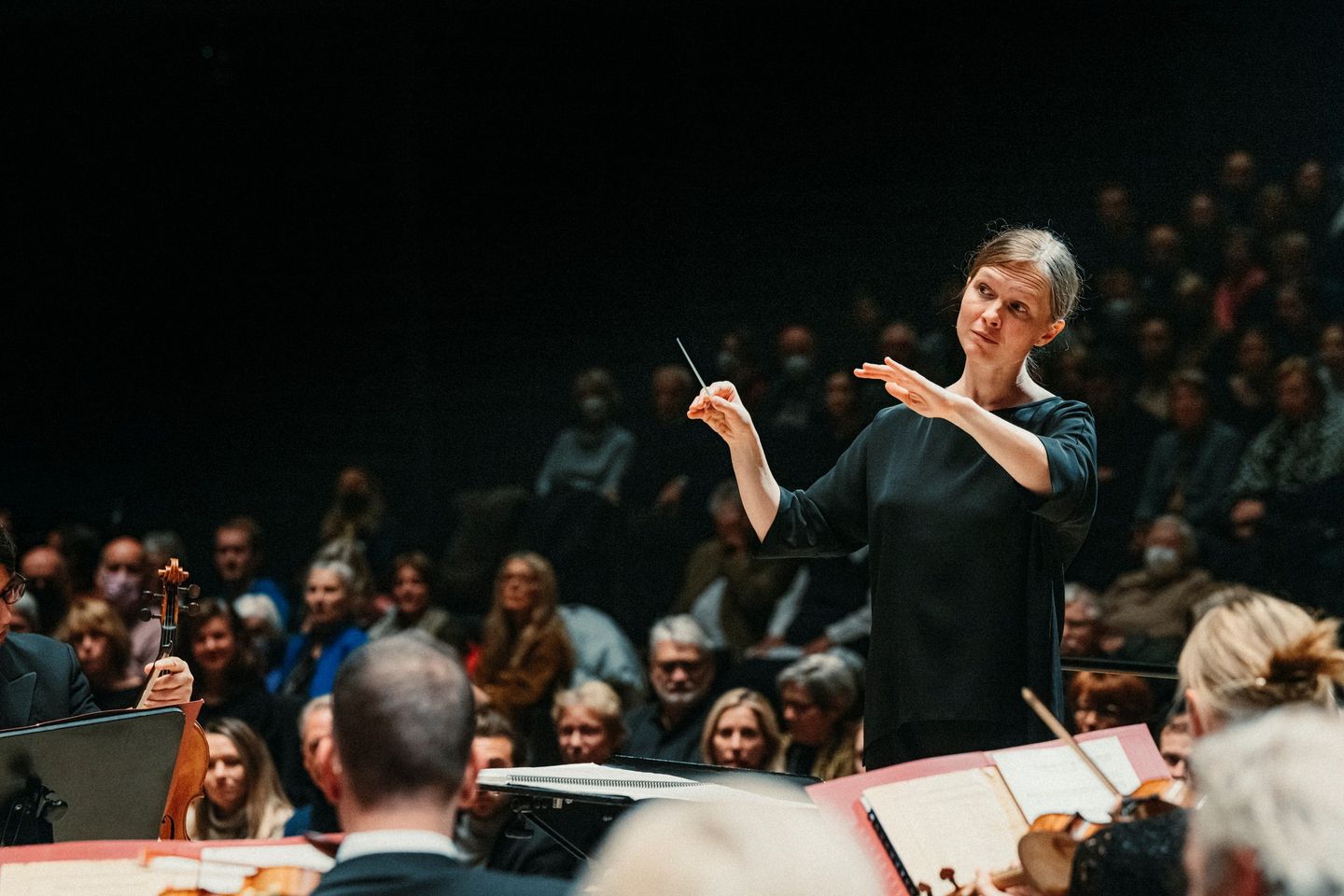An American orchestra has ceased to exist
NewsThe board of the San Antonio Symphony dissolved the company last night after a lengthy dispute with its musicians.
The seventh most populous city (1.5 million) in the US is now without an orchestra.
The Board said this:
With deep regret, the Board of Directors of the Symphony Society of San Antonio announces the dissolution of the San Antonio Symphony. By unanimous vote, the Board has initiated the requisite steps to file for Chapter 7 bankruptcy. The assets of the Symphony now lie in the hands of a Trustee who will liquidate them, pay what creditors remain, and close the doors.
Labor negotiations for what would have been the 2021-22 season began in January of 2021. The last bargaining session between the Symphony Society and the Musicians’ Union took place on March 8, 2022 after which the Union declined to return to the bargaining table, despite efforts of federal mediators and the Symphony. The Musicians’ Union has made it clear there is no prospect of the resumption of negotiations, absent the Board agreeing to a budget that is millions of dollars in excess of what the Symphony can afford. The absence of a labor contract has effectively forced the Symphony to shutter its operations.
We want to thank the hundreds of talented musicians and administrative staff who have served our organization since its founding. Without your tireless dedication, we would not have had an organization to deliver great symphonic music for these past eighty years….
Read on here.
One of the laid-off musicians tells us: ‘ I’d like to point out that in no place in their statement have they expressed any gratitude for the musicians for our repeated donations through voluntary salary reductions over the past 30 years. Nor have the musicians yet been officially notified by our management or our board of the dissolution.’






Unbelievably poor leadership at the management and board level. Wow, just wow. And bravo to the musicians for holding their ground and not accepting an even lousier contract than they already had!
Ground held, but not gained. The orchestra is gone. The jobs are lost. If the musicians refused to meet with board management or federal mediators, that’s not good faith bargaining. What did they think that strategy would lead to? Capitulation? This closure is on the musicians as well for not working to find a path. I don’t think this case is so “them bad / they good.”
Good faith bargaining does not include a 50% pay cut (this time) on top of 30 years of voluntary reduced wages. One of the largest cities in America should be able to maintain a base salary way above 20k. All of this while I can guarantee administration is making 6 figures. They wanted submission, never a negotiation.
They didn’t get either, and now the orchestra is toast, along with the guaranteed six figure administrative salaries you mentioned.
Doing math sometimes helps. “6 figures” is long gone as the benchmark for riches…more like middle class. Further, even if mgmt decides not to charge a cent, that helps…5 musicians?
The sad reality is that out there there is less money society is willing to put for this than for videos of cats taking a dump in a San Antonio alley. Get with the times and close 80% of other orchestras just regurgitating the same boring crap every year in the name of “culture”.
Please substantate your figures. The NY Times reported pay cuts of a little less than 30% for,fewer concerts.
But they don’t have a job and the city is without an orchestra. Yeah stand your ground and go broke.
Yes, and because they held their ground, now they have zero income as musicians (other than teaching and wedding gigs). Welcome to my world: the world of playing gigs for free, because I love music and want to play cool music other than church jobs and wedding gigs.
They effectively accepted a LOT less now—$0.00 per year, for each player.
I hope you all are taking notes on this. This is what happens when organisations run out of other people’s money to spend. For those of you who need the dots put even closer together, a government can’t give away money (grants) that it hasn’t first confiscated from the citizenry.
The term for this “confiscated” money is “taxes”. I love paying taxes (and I pay a lot of them), since it buys civilization. Safety from crime, safe water to drink, safe buildings, an excellent public university (where I work) and even a wonderful full time professional symphony orchestra in my city of 110.000 people. Welcome to Germany!
This is what happens when orchestras are pooly ran by a board that does not know what they are doing.
This is an excellent example of the sort of proud ignorance we in the States suffer with from the bizarre combination of “libertarianism” and budding fascism a loud minority scream about.
Didn’t you used to post under the handle “Benghazi!”, or was it “Hillary’s Email Server”?
How very sad. And a harbinger or things to come in this economic melt down being worsened by poor leadership from Biden. With inflation hurting people everywhere, financing an orchestra is a really low priority.
Sadly, in the U.S., financing an orchestra has rarely been a high priority. This is sad but not unheard of news.
Why should the poor & working class subsidize through their hard earned taxes dollars something that is primarily used by the upper middle class & rich.
Financing endless war mongering is and was the priority of the failed US empire
This has absolutely nothing to do with politics. The San Antonio Symphony has been in and out of bankruptcy numerous times over the past 30 or 40 years, no matter who is president. May I respectfully suggest that we leave politics out of this.
I’m guessing if we had a republican in the WH your attitude would be different.
Because we all know that Trump was such a strong supporter of the arts . . . . . Why don’t you find a Capital to storm somewhere and take your uninformed comments out of here.
President Biden has absolutely nothing to do with any of this. Typical Trumpanzee comment.
The board was a disgrace.
No matter what its size, the city of San Antonio can not support a $7 million orchestra with 75 musicians on full-time contracts. Not now, not ever. You can pay the musicians ten cents or ten million – that won’t change what I’ve just said.
Of course I feel horrible for everyone — musicians and staff — who have lost jobs but do they really, honestly think that there are enough classical music lovers there to support 28 subscription concerts per year?
I worked in the music business in San Antonio. I know whereof I speak.
Thanks David Gross.
Skippy,
I don’t know who you are, but “Drummerman” is not the David Gross who was formerly President of the San Antonio Symphony. I am. I do not condone Drummerman’s comments. (Besides, I never used the word “whereof”)
What a ridiculous statement. You “worked” in the music business in San Antonio? I’m not sure in what capacity but it’s no surprise you’re no longer doing so if you think the city is fundamentally uncultured, uncharitable, or uninterested in classical music.
Omaha, Nebraska, a city less than one-third the size of San Antonio operates on a $9 million budget. If the San Antonio Symphony administrative team is unable to squeeze $7 million or MUCH more in grants, charitable contributions, and corporate sponsors out of the 7th largest city in America, they are nothing but overpaid failures.
It’s the job of the President/CEO, Music Director, Board, and Development team to enroll the community and find the funds. It can be done in many much smaller cities with no greater fundamental appreciation for the arts than San Antonio. What makes any other city (excluding NY, SF, LA, Chicago etc.) more innately hospitable than San Antonio for classical music? Buffalo? Jacksonville? Omaha? Louisville? Are these places simply destinations for classical music lovers?
There are numerous reasons why concert attendance may be low and donors may be scarce, but you can usually trace most of them back to incompetent administrative and musical direction, not poor quality of musicians or total communal disinterest in the arts. Whether the reasons include high ticket prices, a dud of a music director, low quality soloists, uninteresting programming, no cultural link to the community, minimal investment in education and community engagement, financial mismanagement, bad marketing, a stuffy and uninviting atmosphere, etc., management is ultimately responsible.
I look forward to seeing what the musicians do next. I hope the symphony will be reborn under new management and with new direction, and will thrive in the evidently under-utilized potential of the city of San Antonio and its 1.5 million inhabitants.
Not saying the board isn’t incompetent, but how much time have you spent in San Antonio? It’s easy to spew that kind of vitriol from your high-horse, but if you haven’t walked the walk, you shouldn’t talk the talk.
The culture of San Antonio and Omaha could not be more different. But maybe if you’re such an expert, you should apply for the job so that you can wow everyone with your development skills!
I grew up in Texas and have spent substantial time in San Antonio. It was host to all-state orchestra among other things. I haven’t lived there, but I’ve been there as a student, I’ve gigged there, and I’ve worked with a number of the symphony’s current and former musicians. I’m not unfamiliar with the city by any stretch.
I wouldn’t dare to take on the role of development director for any group. That’s better left to someone who knows what they’re doing, unlike whoever the San Antonio Symphony had in the role.
It’s all relative. If San A has a population of 1.5 mm that’s about 4 bucks per head per year. Is it that SA CAN not support this, or just WOULD not?
Sad for all concerned as this orchestra had a proud history – including fine recordings on Mercury. And obviously it is the musicians, not its Board, that make an orchestra fine.
Random observations:
1. Working for (or being on the Board of) a begging institution — by which I mean a 501(c)(3) charity — is always dicey because .
every dollar is voluntary and somebody’s whim of the moment. When the begging stops working, oh dear.
2. Under labor law it is probably always better to bargain even if you are wasting your time. The labor laws are tilted against those who refuse to bargain. Usually it is the employer who makes that mistake.
3. Filing for Ch 7 — versus merely threatening to file for Chapter 7 — is the big hammer. As a former colleague of mine once remarked, no judge in the American legal system has the raw power of a bankruptcy judge. You think you have contracts? You have no contracts. Think you have rights? You have no rights. Think you are owed something? You are owed nothing. The one exception — secured creditors.
We have entitled musicians who feel that society should treat them as if they are special. But are they special when administration has to literally beg for money in order to keep things running? Something is wrong with that picture.
Ultimately this is a stain on the city of San Antonio. Having a symphony orchestra (and art museums, opera, ballet, zoo and other main stream cultural landmarks) is a hallmark of any and every great city. San Antonio presents itself to the world as being merely a people warehouse, with all the consequences that will come from that, in social degradation, tourist flight, and companies looking to give its workers better quality of life choosing to go somewhere else.
Let us hope San Antonio will come to its senses and rebuild their symphony as soon as possible. And never place these Board members on another civic duty position again.
Your statements smell of entitled musician thinking. It’s like trying to force a girl to be your girlfriend even when she is not interested in you. If the citizens of San Antonio are not interested, no amount of wishful thinking is going to change it. RIP San Antonio Orchestra…or whatever it was called.
Completely agree with Peter. You can’t blame the board 100% for all of the issues here.
For Alex to call it “a stain on the city” and to say that without one it will be “social degradation” is pretty myopic. It actually isn’t really fair to the city. The orchestra is an independent non-profit, and the board members are neither elected by citizens, nor does the orchestra have any official business relationship with the city, other than receiving a grant here or there as it would from the state and federal level as well.
He goes on and on to insult the city. That’s not going to solve the problem.
I think anyone reading this forum wishes that every city had a phenomenal symphony and other cultural attractions. But musicians need a major wake-up call.
Of course if you spent years in conservatory and training to the highest levels, you’re naturally going to place a high dollar value on your investment. But that investment is not supported broadly in terms of the American market value. It’s a shame, but it is what it is. The sooner that musicians can stop living in fantasy-land and start living in reality, the more quickly the problem can be solved.
If Alex has some solutions, other than just insulting the city, I think we’d be all ears here.
I’m a pro orch player & I agree that musicians – those in the US in particular – need that wake up call. US orchs have passed the point where musicians can win an orch job & then function in a salary bubble unrelated to the rest of the community. Musicians need be more financially literate & present themselves as less entitled.
And for God’s sake, stop churning out ridiculous nos. of new conservatory grads expecting to get permanent, full time orch jobs. Tell them to get business degrees. Accounting degrees. Make musicians study how orchestras are funded.
The pro orchestra world doesn’t need more well trained instrumentalists who play at a high level. It needs more musicians who understand & can take charge of boards & orch administrations & help make sure orchs are solvent financially.
Yet I guarantee that many of these poor souls who’ve just lost their jobs with this dissolution will go out & teach & exacerbate the problem by creating more well trained players who have very little chance of getting orch. jobs & who don’t have a clue about how orchs are funded.
The US was a bad stain on the world. They can’t feed the poor, ( or have a world class philharmonie) but got tons for war. It’s more to come as the empire s wheels fall off the American jalopy
This was a unilateral decision by the board and likely an illegal one to. The board cannot unilaterally dissolve the orchestra and liquidate the assets without a vote from the musicians and the union. It clearly violated the terms of the contract:
https://www.tpr.org/2022-06-16/san-antonio-loses-its-symphony-board-dissolves-the-san-antonio-symphony?fs=e&s=cl
This is not the end of the story and will likely face further court action. This is simply the board burning it all down instead acknowledging their incompetence.
This article mentions “transfer of assets” being part of the contract, not the ability to dissolve the orchestra. In other words, once all of the bills are paid, if there’s any cash left they all decide who gets it. (BTW, most orchestra by-laws have a paragraph stating that should the group dissolve, the assets are to be given to another 501C3 organization engaged in a similar field.) Of course, the symphony also owns percussion instruments, a very large music library, plus office equipment, etc., all of which count as “assets.”
Didn’t the contract expire?
All musicians certainly deserve a living wage if they can get it, but if the San Antonio Symphony has always been in financial trouble – for decades – are we to think that all of those managers and board members over all of those years were all incompetent and apathetic? Where are the other thriving performing organizations of that same size in SA? You can shout “San Antonio is large enough to support a full-time symphony orchestra” to the rafters, but history clearly says otherwise. And this fragile organization just broke because of a pandemic that none of us had any control over. Other orchestras survived, some only barely, and most with some major concessions. The last contract offered to the SAS musicians was NOT unreasonable considering where we all are. $30k a year (down from $35k pre-pandemic) and a reduction to 50 musicians (from 72) through attrition (no firings or demotions, as was originally proposed). Meanwhile, the musicians continued their public attacks against the organization and its leadership while aggressively diverting as much funding and support as possible, and then expecting the symphony management to somehow still “find the money” and come up with a budget as it was pre-COVID without even the ability to sell any tickets. This is the epitome of ignorance as to how non-profit finances work in the US. The musicians can complain that the board didn’t “treat them right,” but make no mistake, the musicians killed the San Antonio Symphony. There’s no other way to see this. In the meantime, whatever organization that will come out of the ashes will likely be nowhere near the size and scope of even the board’s last offer. Good luck to all involved.
Oh, hey, SAS board member casually writing in to Slipped Disc.
“There’s no other way to see this”…seriously?
Not, for instance, a board cowed by Texas bankers and union-busters, swayed by the idea that fundraising just can’t happen in San Antonio, yet mysteriously CAN happen in Dallas, Houston, Fort Worth (each of which has a board triple the size of San Antonio’s)…?
San Antonio Symphony was notoriously underpaid by industry standards. Musicians took cuts year after year, decade after decade.
This organization has burned through numerous VPs of development, and in its previous last attempt to get it together was being advised by none other than Michael Kaiser. The moment they took his advice, SAS was in the black.
Then…they stopped. And the crisis began anew.
Background here:
https://songofthelarkblog.com/2021/10/02/the-san-antonio-symphony-story-trust-no-one-ever/
I’m most definitely not a board member, but that’s beside the point…
“Dallas, Houston, Fort Worth… each of which has a board triple the size of San Antonio’s.”
“This organization has burned through numerous VPs of development.”
Both of those things mean what, exactly? Who did the burning? Why does the SAS have a smaller board than those other orchestras? What do you think the implications are?
“The moment they took [Michael Kaiser’s] advice, SAS was in the black.”
Michael Kaiser was interim ED for only 6 months. He began mid-July 2018. Corey Cowart took over Jan 2019. The current board chair was the board chair during all of that time as well, and – according the blog post you shared – SHE was the driving force behind the one-time fundraising campaign that put the orchestra in the black that summer, less than 2 months after Kaiser started with the orchestra. You are implying that this was all Kaiser’s doing? That somehow he just showed up and fixed everything in less than a couple of months?
I hate to break it to you, but that’s not how any of this works.
Maybe some US empire techy billionaires can help fund the orchestre? The US certainly has billions for endless war. Maybe the military /defense profiteers/hu$lers can pitch in.
The members will move on, move away and continue their successful lives. I doubt Texas is appealing to anyone these days to be honest .
Very well said. I think — emphasize “think” — that the city of San Antonio could support a “core” orchestra type of group, playing (maybe) 6 – 8 pairs of classical subscriptions, not 14 like the most recent season, maybe 3 or 4 of pops concerts, some children’s programs, a “Messiah” and that’s it. Perhaps a budget of ca. $3 million might be feasible.
One can’t blame everything on the musicians. San Antonio is a very unusual market: the 7th largest city in America but ranking something like 260 in per capita income. You have a large military presence which means a highly transient population. There are several major corporations there with zero or next to zero tradition of philanthropy, certainly not for the arts. Think USAA Financial Services; Clear Channel Communications, Valero Energy, also HEB Supermarkets, the 8th largest privately held corporation in America. If you’re lucky, on a good day HEB will donate a cheese platter.
Drummerman, you comments on major corporations is out of step with my experience working in Development in San Antonio. HEB and Valero were incredibly generous. Both in the arts and for social services.
I am not close enough to the situation to know who is right and who is wrong, etc. So you could very well be completely right. But on one point you make, about other groups in SA: while it is not a PERFORMING organization, another arts organization in SA that is even larger than the symphony, and seems to be okay, is the art museum, with a $15 mm annual budget…
This is so accurate. But I would not assume all the musicians were on the same page. Often a union is very aggressive and oppressive of its membership, half the orchestra could have been kept in the dark.
Thanks for a very cogent comment on this dismal situation.
I heard from multiple friends in SAS that said the union in SA REFUSED to send anonymous polls to the orchestra throughout the whole process which has always been standard procedure there and is the norm for all ICSOM orchestras for negotiations.
The Negotiating Committee has no integrity.
I tell myself, “No. You are a better person than this. Pretend to care!”
However, absolutely no feelings of “Sympathy for the Symphony” (a possible CNN exclusive?) come. Why not? Well, I went to school with some of these symphony members. Whether it’s the San Antonio Symphony or another orchestra, chamber ensemble, etc., it’s always the same characters in the mix – textbook narcissists that are simply using music as a ladder instead of actually making a meaningful contribution. Also, it’s tiring to see management constantly blamed. It’s the MUSICIANS, not management! Musicians are entitled to NOTHING! The motto of each musician tends to be “Look at me! Give me the spotlight! Listen to me! It’s all about me and the particular ensemble that I play in.” If the demand isn’t there then they need to face the facts and then move on. No reason to cater to them.
Classical music is one of the most corrupt fields in existence where various gatekeepers will either remain silent or lie through their teeth telling you that you are not a good enough musician when in reality they just wanted a friend or someone else in the loop for the job. At the same time, I do appreciate people like Max Raimi from the CSO who are really trying to do the right thing by promoting transparency and fairness despite challenging conditions. But in general, it’s always been a gang and it starts with youth orchestras and summer music festivals. Really not much can be done as it’s human nature. But at the same time, we need not care when they crash and burn. Fu** em!
Hey everyone, I found the person who can’t even get out of a prelim!
Take your jealousy and stuff it. Just because you’re not good enough to win a job doesn’t mean others who possess superior talents shouldn’t be proud of their achievements.
This attitude is why boards & orchs often can’t see eye to eye: entitlement. Working musicians wouldn’t express it this blatantly, though. Only a wanna-be who knows just enough about music & orchs would bother to try to tell everyone else how it should be done.
Spot on. It’s a buddy buddy rigged system. Look some sections in other orchestras. More than half are the principals former students….hmmmm….then he makes “calls” for certain festivals, applications, auditions, etc etc. All a con game. Corrupt as the Ukraine
There will be a domino effect with area venues and businesses with the loss of the orchestra . It always impacts the community …wait and see .
Who was their Music Director? And couldn’t the MD have helped prevent this from happening? The next orchestra that hires him should look into that thoroughly.
As they say- money talks, bullshit walks.
This is what happens when you have corporate types on Boards. They are used to paring down employees, reducing pay in the process. They are not equipped, mentally, to ask other wealthy people for donations for an entity they do not understand. They have no respect for the discipline and intelligence, talent, and training of the musicians, which they see as “only” entertainers, or lackeys. Musicians need to find another way to fund their organizations. Old money, rather than new, usually respects musicians more, as they have had a few generations to get some culture under their skin.
Doesn’t SA have any rich billionaires to subsidize the arts? Greedy bastards.
I recall this is the orchestra that ejected the race-tweeting trombonist a year or so ago, right?
That was the Austin Symphony.
Not true
It appears as all is not lost for the SAS: https://mosasperformancefund.org/
Looks like they have some life left—
There looks to be a serious disconnect between what pro orch musicians want & deserve & what a US community, even in a major city like San Antonio, is willing to pay. Musician training should include a basic understanding of arts funding.
Yes, musicians should demand what they’re worth but they also need to understand what’s possible in their community & how to achieve what they’re asking for. Musicians are often much smarter than the board members who are supposed to be figuring out the business end of it, so the logical solution is to have more musicians trained in business & arts funding on the board.
The US is faced with far more critical issues right now than how to float an expensive symphony orchestra. People are worried about inflation, gas prices, a looming recession. The stock market is tanking, there’s covid fallout, US democracy is being defended with the Jan .6 hearings, southern borders are wrestling with record nos. of illegal immigrants & mass shootings continue because the US cannot agree on gun laws. Texas is on the front lines on all of these issues.
Asking private donors to cheerfully subsidize an expensive symphony orchestra in the middle of all of this is just crazy, IMHO. If the musicians think it’s reasonable, then they need to be on the board so that they can make it happen.
Of course, the musicians are justified in what they’re asking. But if it’s not happening, they need to figure out why it isn’t & do something about it. You can’t just sit there playing a clarinet or violin saying “I deserve this salary. You make it happen.” to the board. The board is clearly not that bright or willing.
Orch. musicians are intelligent, intuitive professionals. They also tend to be pompous & entitled. Get over it. You guys are smarter than the board. This is a new era. Orchestras are in survival mode. If you want your orch. to stay afloat, or start another one from the ashes, you can’t just expect someone else to fund it for you. Figure out how it’s done & do it yourselves. Get your MBA. Take a class in Arts Administration.
Most important, make musicians in school now understand that this is what they’re up against if they hope for a job in a US orchestra.
That’s why no one in their right mind would live or die in the US empire. It was and is vile place
Live, in person classical music in the United States is circling the drain.
Enough with the “7th largest city” claim. OK, technically it is true, but “largest CITY” is not the proper metric. Metropolitan Area is. As such the San Antonio – New Braunfels is 24th largest. That’s still large but it’s not exactly Philadelphia or Dallas.
It seems odd, and also telling, that the Board’s statement of thanks extends only to the musicians and the administrative staff. Running a major symphony orchestra properly involves securing, nurturing and maintaining vast levels of philanthropy. All major symphony orchestras worldwide rely on this. I suspect the board dropped the ball on this aspect big-time.
The fact that the SA orchestra’s musicians have willingly agreed to a salary cut for many years is proof enough that they have struggled to keep the orchestra alive to this day. Such efforts should be rewarded, not wasted. Shame on those who failed to do so. And my deepest sympathy for SA’s classical music lovers.
Apathy did it.
Not surprising. The failed US empire has a rigged “two party” system then bails out corporations left and right, has endless billions for nonstop wars, yet a penny for the arts?!?
Crickets